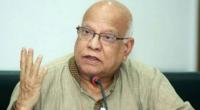 After making profits for a few years, the country’s state-owned oil entity once again started to make losses.
After making profits for a few years, the country’s state-owned oil entity once again started to make losses.
Bangladesh Petroleum Corporation (BPC) says, it has been counting losses from November in diesel and kerosene sales while for furnace oil, it‘s since October 2016.
In the wake of the losses, the government’s Energy and Mineral Resources Division is now considering to hike prices, especially for furnace oil.
With a long history of sustaining losses, the BPC came out from its losing streak from October 2014, when global oil prices dropped but remained unadjusted in the local market.
From 2012 to 2016, international oil prices fell gradually from $105 per barrel to $30 per barrel.
Amid the BPC’s windfall profits due to lower global price and higher price in domestic market, the Bangladesh government finally decided to revise the prices.
On Apr 24, 2016, prices of diesel and kerosene were brought down by 4 percent while octane and petrol by 10 percent.
Soon after the price revisions, crude oil, which was being traded at $43.17 per barrel then, started to rise in the international market to stand at $65.49 in January this year.
Diesel prices rose to $82 from $50 in 2016, kerosene at $82 from $53 and a tonne of furnace oil now costs $412, up from $216 two years ago.
From January this year, the state-sponsored corporation is losing Tk 9.8 for every litre of furnace oil it sells while for diesel it’s Tk 5.24, according to BPC sources. It counts a loss Tk 11.37 in per litre of kerosene obtained from condensate fractionation plant.
Mir Ali Reza, a former marketing director of the BPC, says countries across the world revise oil prices in line with the international market.
“In the Indian city of Kolkata, a litre of diesel (as of Jan 22) cost Tk 87.34 (Bangladeshi currency), which is Tk 22.34 higher than in Bangladesh, which has spiked smuggling out of oil,” he told Bangla Tribune.
According to Reza, BPC started to make losses in furnace oil since late 2016, but it did not create a dent as it was making profits on other products.
“But that’s not the case from November, when it started to make loss in diesel and kerosene and it’s going up,” he said endorsing the need for a price revision.
Prof M Tamim of the BUET’s petroleum and mineral resources engineering department, however, says the government should now subsidize oil.
“The subsidies can come out from the huge profits made in the last five years,” he told Bangla Tribune.
According to him, furnace oil prices do not need a revision as it’s mostly used in power plants, where the use of liquefied natural gas (LNG) can be increased.
“It’s the same for diesel, but it accounts for only 10 percent of the inputs used to generate power, but it’s heavily used in transport. So, a revision in that can be rational,” said Tamim, who oversaw the government’s energy division during the military-installed caretaker regime as a special assistant to the chief adviser.
According to government data, the BPC was constantly in the red between the fiscal years of 1999-2000 and 2013-14.
It started to make profit from the next fiscal, clearing its arrear of Tk 54.52 billion with state-owned banks and the PetroBangla.
In 2015-16 and 2016-17 fiscals, the government received Tk 22 billion in dividends from the BPC.
A senior BPC official, preferring anonymity, said that the BPC has started to implement several projects, which were supposed to be funded by the government, with its own funds, including a second unit of the Eastern Refinery, single-point mooring, pipelines between Dhaka and Chattogram, and Narayanganj’s Kanchan Bridge from Dhaka’s Kurmitola.
Sources in the government say, the issue of BPC’s losses was discussed in a recent meeting of the power and energy ministry, where a revision of oil prices as soon as possible was recommended.
 Business
Business
41046 hour(s) 16 minute(s) ago ;
Morning 01:11 ; Monday ; Jun 23, 2025
Bangladesh Petroleum Corporation back in the red
Send
Shanchita Shitu
Published : 12:27, Apr 19, 2018 | Updated : 20:29, Apr 20, 2018
Published : 12:27, Apr 19, 2018 | Updated : 20:29, Apr 20, 2018
0 ...0 ...
/SNS/TN/PDN/ZMI/
Topics: Top Stories
- KOICA donates medical supplies to BSMMU
- 5 more flights to take back British nationals to London
- Covid19: Rajarbagh, Mohammadpur worst affected
- Momen joins UN solidarity song over COVID-19 combat
- Covid-19: OIC to hold special meeting
- WFP begins food distribution in Cox’s Bazar
- WFP begins food distribution in Cox’s Bazar
- 290 return home to Australia
- Third charter flight for US citizens to return home
- Dhaka proposes to postpone D8 Summit
Unauthorized use of news, image, information, etc published by Bangla Tribune is punishable by copyright law. Appropriate legal steps will be taken by the management against any person or body that infringes those laws.
Bangla Tribune is one of the most revered online newspapers in Bangladesh, due to its reputation of neutral coverage and incisive analysis.
F R Tower, 8/C Panthapath, Shukrabad, Dhaka-1207 | Phone: 58151324; 58151326, Fax: 58151329 | Mob: 01730794527, 01730794528






